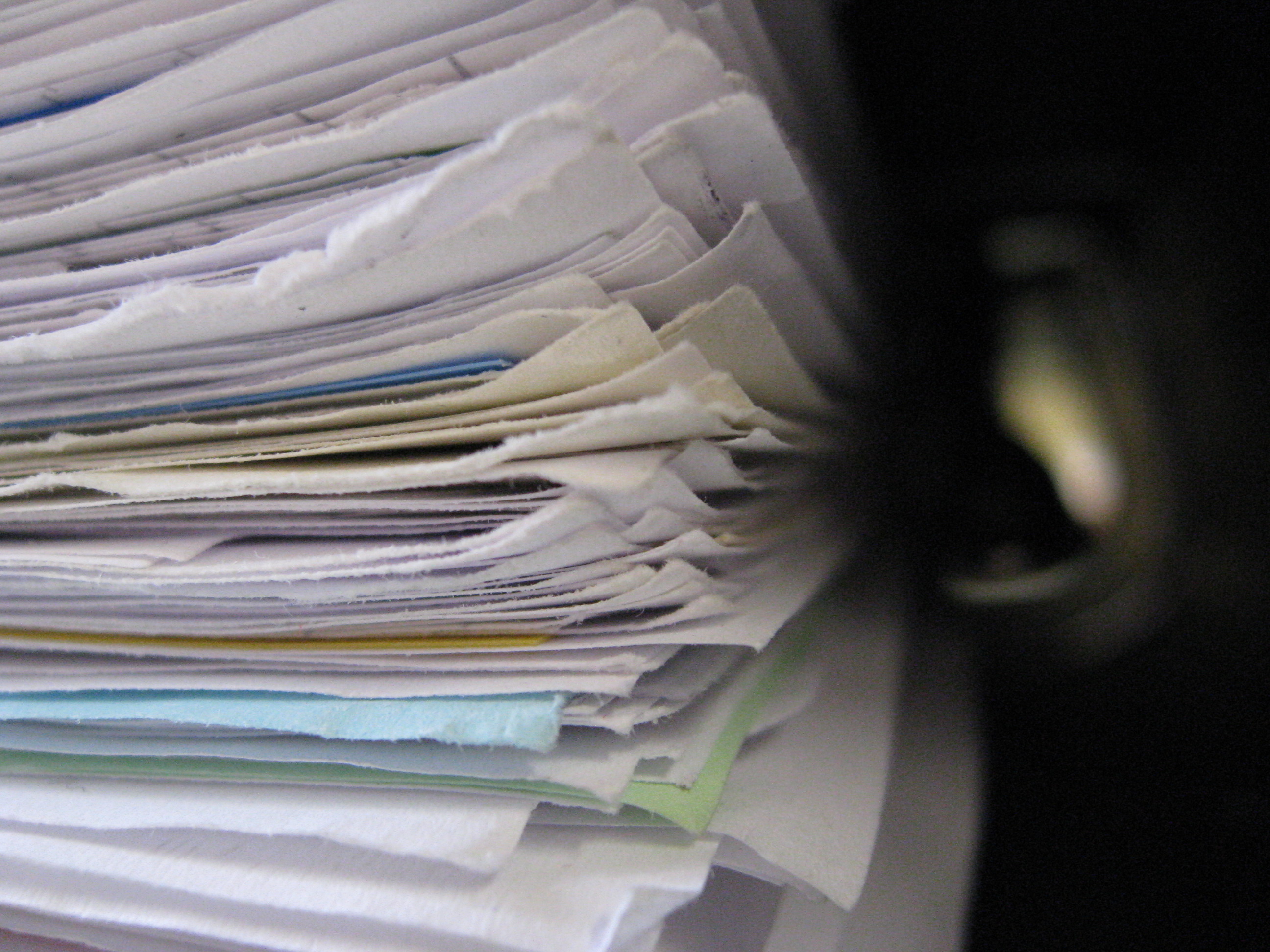- I find a blank page easier to start on and fill than a blank screen.
- It's easier on my eyes because there's no screen glare.
- There are fewer distractions than when using electronics.
- I never have to worry about battery life.
- I'll never lose my work if my machine dies.
- It's easier to carry a notebook and write than it is to carry and set up a laptop.
- I like it.
This means I go through a lot of paper and it's shaped my relationship with stationery over the years. I love office supplies, but I don't value them. I don't buy high-quality, expensive writing supplies. To me notebooks and writing tools are entirely ephemeral and expendable. They exist to be used, consumed in the process of creating, and are only valuable as a substrate for words.
Because of that my taste in materials is for the inexpensive, simple, and durable. I use things that can take a beating as I cart them around with me, do the job, and cost $1. Seriously, I try not to spend more than $1 per notebook. I wait for back-to-school sales and stock up or pick up stuff from thrift stores and garage sales. And honestly I would rather have 15 plain $1 composition notebooks to work in than 1 fancy $15 journal. It means I get to write more.
At the same time I try to get things that are nice. Not luxurious, but nice. Things that I genuinely enjoy using because even inexpensive and expendable things should be fun. If I like using my tools, writing is that much easier. If the tools I like are readily available, inexpensive, and expendable then I never hesitate over a notebook being "too good to use" or worry about wasting material. I can just get to creating.
What I end up using the most are:
Spiral notebooks
For ideas and early drafts. I try to get little ones that can fit in a pocket or get thrown in a bag. 5" x 7" (B6) is a good size, but can be hard to find. I like them mostly for the fact that you can neatly tear out pages when they're no longer needed. Lets you start fresh and cut down on distractions from past projects. (Seeing the number of pages decrease also feels like you've accomplished something tangible compared to notebooks where the pages are more firmly bound.) Being able to completely fold the spine back on itself is useful for writing while out too.
Loose leaf
Good for later drafts because it's neat and easy to store in 3-ring binders while a work's in progress. It also lets you shuffle pages and sections around as much as you like and lets you test different orders while finalizing a piece. (And it's cheap.)
Writing and legal pads
I don't use these as much, but they're useful as scratch pads for jotting down ideas or testing wordings before throwing them in a draft. Sort of a spare space to get dumb ideas out of the way when I get stuck on something. And they're invaluable for collecting and organizing entries while making lists.
Composition notebooks
These are the only notebooks that I keep long-term since they're my hardcopy back-ups. I love them because they're durable, easy to get, and easy to store. (Compact and uniform size is an ideal combo. There's also plenty of real estate for stickers.) I go with the classic two-color marbled cardboard cover ones for nostalgia's sake, wide-ruled so there's room to add notes, and usually fill one 200-page notebook every six months or so.
Rollerball pens
They're a little pricier than ballpoints, but it's worth it. The liquid ink makes writing easier so I can work for longer without getting a cramp or hurting my hand. Ink also keeps me from trying to edit and second-guess myself as I write. Since I can't erase I've just got to keep going and get words down. (They also come in gorgeous colors. Nice things.)
Pencils
These are the only concession I make to archival quality. Ink can fade, but graphite lasts forever. The paper it's written on could rot away and the graphite will still be there in a pile of dust. I use pencil in my composition notebooks because I intend to keep them for a while. I use wood pencils at home (because my dad gave me a 144-count box that I've almost finished) and mechanical while out.
On archival quality: It's not something I actually worry about. Finished books may be worth preserving, but my drafts are for me. If they last my lifetime that's more than enough. There's no point in trying to preserve these papers beyond me, so I don't bother.
And that's it. The materials I use, why I've selected them, and my relationship with them as tools of the trade. It all comes down to choosing what works, then actually doing the work.

The whole "ink means I can't edit" is SUCH an important part of my process too.
ReplyDeleteI ought to use graphite more this year
I regularly transfer everything on phone and loose leaf paper to gdocs and notebooks, which is a solid way of sorting out what notes were actually good and worth keeping.
ReplyDelete